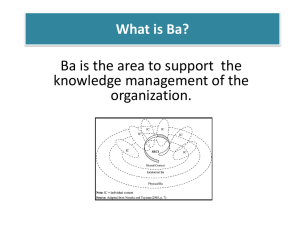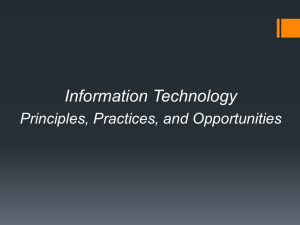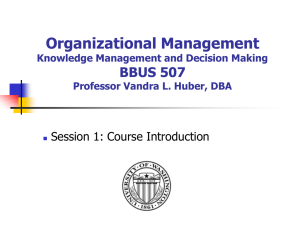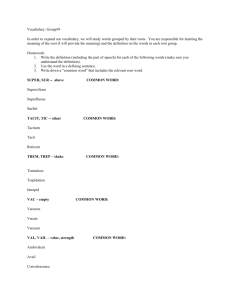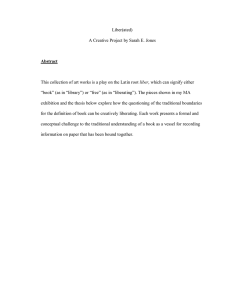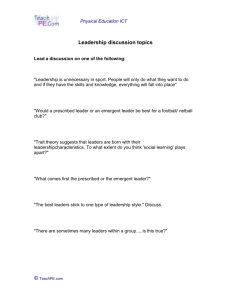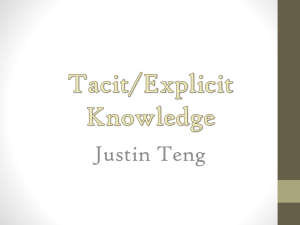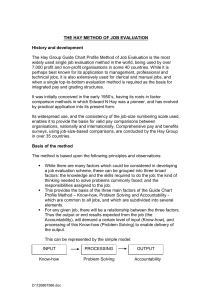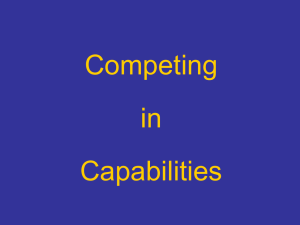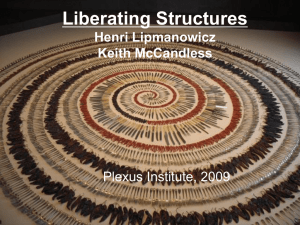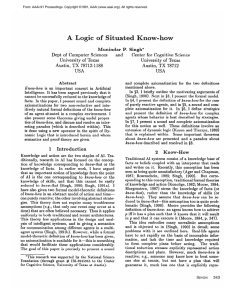Ensuring Every Voice is Heard
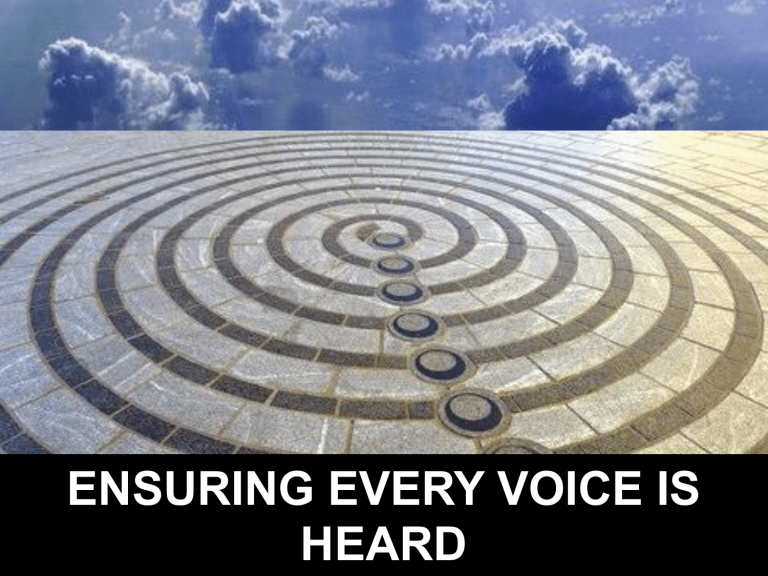
ENSURING EVERY VOICE IS
HEARD
Speed Networking Prompt
• Find someone you do not know in the room.
• Introduce yourself and chat about why you chose to attend this session on Liberating
Structures.
If you want to go fast, go alone. If you want to go far, go together.
African Proverb
TRIZ Prompt
• How can we cultivate an environment in which people do not feel free to express diverse opinions or perspectives? What can we do to make people feel unwelcome and unsafe? Be specific.
• What are we doing in our own practice that in any way resembles this?
• What steps can we take to flip it?
TRIZ
Stop counterproductive activities and behaviors to make space for innovation
1. Make a list of all you can do to make sure that you achieve the worst result imaginable.
2. Go down this list item by item and ask yourselves, ‘Is there anything that we are currently doing that in any way, shape, or form resembles this item?’
3. Go through the items on your second list and decide what first steps will help you stop what you know creates undesirable results?
Is this elephant in your room?
• Deadly boring meetings
• Wondering why people don’t speak up
• Group process that feels like drudgery
• Separating the deciders from the doers
• Excluding people because it slows you down
• Great ideas that never leave the drawing board
Over-Controlled Presentation/Lecture
• Too uniform
• Engaging only one person or a select few in shaping direction
• Flow in one direction
?
Conventional Structures
Too Tight or Too Loose
Presentation Open Discussion
• Too uniform
• Engaging only one person or a select few in shaping direction
• Flow in one direction
• Under-controlled
• Too unstable
• Too random to shape direction
Liberating Structures
Distributed, tight and loose
• Diverse yet interdependent relationships
• Distributed control, flow from any point, any direction
• As the action unfolds, direction is shaped by participants themselves out of local interaction
Liberating Structures
Introducing tiny shifts in how we meet, plan, decide and relate to one another
• Simple
• Expert-less
• Results-focused
• Rapid cycling
• Inclusive
• Multi-scale
• Seriously fun
• Self-spreading
Sources of Knowing and Innovating
Three levels of individual and collective agency
Explicit: What people tell you they know or need in a focus group
Tacit: What you can observe people doing
Emergent: What you can invent together that is not yet enacted
How to Generate
Finding best practices, separating know-how from local context
Drawing out embodied or hidden know-how in a local context
Actualizing what is possible now
Sources of
Knowing
Explicit
Tacit
Emergen t
How to Generate
Finding best practices, separating know-how from local context
Drawing out embodied or hidden know-how in a local context
Actualizing what is possible now
Sources of
Knowing
Explicit
Tacit
Emergen t
1-2-4-All Prompt
• On your own, think of a time when you have had success in engaging faculty in relation to your office mission.
• Share your experience with another person.
• Now, you and your partner connect with another pair.
• In a group of 4, work together to identify common themes. What do those experiences teach you about what works?
1-2-4-All
Engage Everyone Simultaneously in Generating
Questions, Ideas, and Suggestions
• Self, pairs, foursomes, whole group
• Equal time and opportunity for everyone
• Face to face interaction between participants
• 1 minute alone, 2 minutes in pairs, 4 minutes in foursomes, 5 minute for whole group
What, So What, Now What? W³
Together, Look Back on Progress and Decide
What to Do Moving Forward
• WHAT? What happened? What did you notice, what facts or observations stood out?
• SO WHAT?
Why is that important? What patterns or conclusions are emerging? What hypotheses can you make?
• NOW WHAT? What actions make sense?
What, So What, Now What? W ³
• WHAT? What happened? What did you notice, what stood out?
• SO WHAT?
Why is that important? What patterns emerged? What hypotheses can you make?
• NOW WHAT? What actions make sense?
What steps might we take to apply these practices in our work and organizations?
